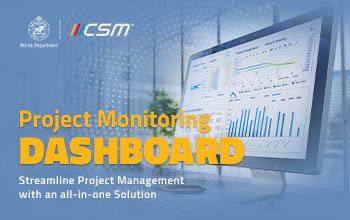.jpg)
In the bustling streets of Nairobi, a new digital revolution is quietly unfolding. The Maisha Card, Kenya's ambitious foray into digital identification, promises to streamline public services and boost efficiency. Yet, as with many technological leaps in the developing world, the path to implementation is fraught with challenges. While the potential benefits are significant, the Kenyan government must first navigate a complex web of technical hurdles to realize its vision.
The Maisha Card, Swahili for "life card," aims to be a one-stop solution for accessing government services, from healthcare to social security. This digital ID initiative follows in the footsteps of similar programs worldwide, such as India's Aadhaar and Estonia's e-Estonia platform. These systems have shown the transformative power of digital identification in public service delivery.
India's Aadhaar system, launched in 2009, now covers over 99% of the adult population, according to the Unique Identification Authority of India. A 2019 World Bank study found that Aadhaar-based biometric authentication in India's public distribution system reduced grain diversion by 47% and lowered program expenditures by 12%. Similarly, Estonia's digital ID system has enabled 99% of public services to be accessed online, saving an estimated 2% of GDP annually in productivity gains, as reported by e-Estonia.
The potential benefits for Kenya are equally compelling. The World Bank estimates that digital ID systems can generate economic value equivalent to 3-13% of GDP by 2030 in developing countries. For Kenya, this could translate to billions of dollars in economic gains. Moreover, the Maisha Card could significantly reduce bureaucratic inefficiencies and corruption, issues that have long plagued Kenya's public sector.
However, the road to digital transformation is seldom smooth. Kenya's journey with the Maisha Card has been marred by technical glitches and implementation challenges. Reports of system crashes, data inconsistencies, and connectivity issues have plagued the rollout. These problems echo similar challenges faced by other countries in their digital ID journeys.
Nigeria's attempt to implement a national ID system has been ongoing for over a decade, hampered by technical difficulties and inadequate infrastructure. The Nigeria Identity Management Commission reported in 2021 that only about 51% of the population had been enrolled in the system, far short of the goal of universal coverage.
Pakistan's NADRA system, while largely successful, has faced criticism over data security and privacy concerns. A 2019 report by Privacy International highlighted vulnerabilities in the system that could potentially expose citizens' personal information.
These examples underscore the critical importance of addressing technical issues before fully deploying such systems. For Kenya, the primary challenges revolve around three key areas: infrastructure, data management, and cybersecurity.
Infrastructure remains a significant hurdle. While Kenya boasts one of the highest internet penetration rates in Africa at 85.2% according to the Communications Authority of Kenya, connectivity in rural areas remains patchy. A 2022 study by the Alliance for Affordable Internet found that only 44% of rural Kenyans had meaningful connectivity. This digital divide could potentially exclude a significant portion of the population from accessing Maisha Card services.
.jpg)
Data management presents another formidable challenge. The sheer volume of data involved in a national digital ID system requires robust storage and processing capabilities. A 2021 report by the International Data Corporation projects that the global datasphere will grow to 175 zettabytes by 2025, highlighting the massive scale of data management required for such systems.
Cybersecurity is perhaps the most critical concern. As digital ID systems become more pervasive, they also become prime targets for cybercriminals. The 2021 Cost of a Data Breach Report by IBM found that the average cost of a data breach in the public sector was $1.93 million. For a developing country like Kenya, such a breach could be catastrophic, both financially and in terms of public trust.
To address these challenges, the Kenyan government must prioritize several key areas. First, investment in digital infrastructure is crucial. This includes not only expanding internet coverage but also upgrading existing networks to handle increased data traffic. The government should consider public-private partnerships to accelerate this process, similar to Rwanda's successful collaboration with Korea Telecom to deploy a nationwide 4G LTE network.
Second, robust data management systems must be implemented. This involves not only investing in state-of-the-art data centers but also developing clear protocols for data collection, storage, and usage. Estonia's X-Road system, which allows secure data exchange between various government databases, provides a useful model.
Third, cybersecurity measures must be strengthened. This includes regular security audits, encryption of sensitive data, and training of personnel in cybersecurity best practices. Israel's National Cyber Directorate, which coordinates cybersecurity efforts across government agencies, offers a potential blueprint.
.jpg)
The Maisha Card holds immense potential to transform public service delivery in Kenya. However, its success hinges on the government's ability to address the technical challenges that currently hinder its implementation. By learning from global experiences and investing in critical areas such as infrastructure, data management, and cybersecurity, Kenya can turn the promise of digital identification into reality.
The journey may be complex, but the rewards are substantial. As Kenya navigates this digital transformation, it has the opportunity to not only improve the lives of its citizens but also to set a new standard for digital governance in Africa. The Maisha Card could indeed be a game-changer, but only if the foundation it's built upon is solid and secure.


























































We will verify and publish your comment soon.